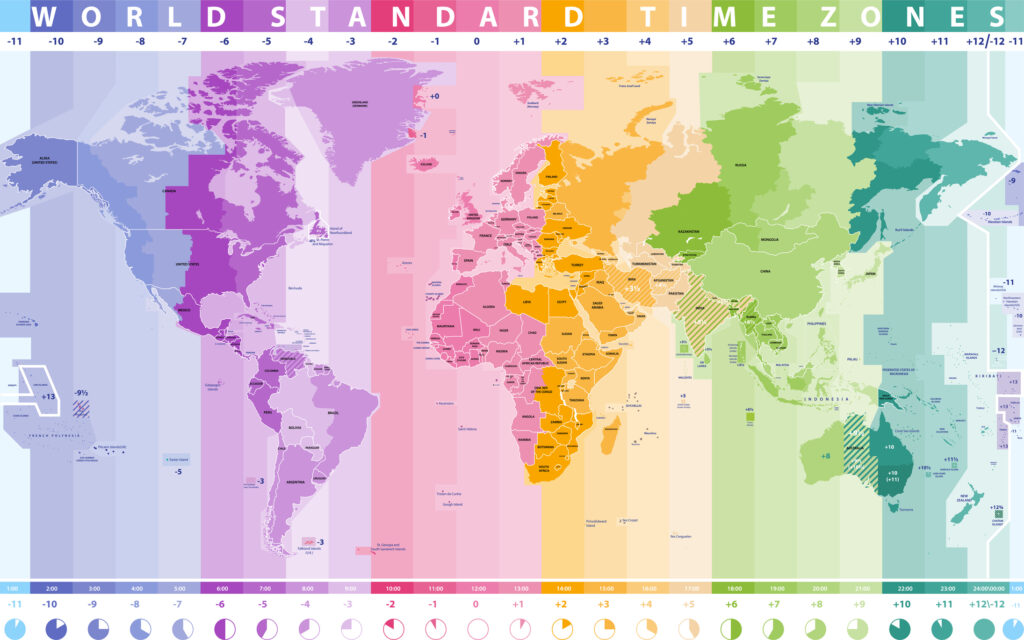There are days when you sense a buzz in the air, a change is on the horizon. Can you feel it? It’s happening right now. We’re all collectively standing on the cusp of something big, something transformative. And that ‘something’ is the future of work as we’ve known it!
Gone are the days of stuffy cubicles and mind-numbing commutes. Instead, we’re embracing the freedom of working from our cosy home offices, favourite coffee shops, or even that sun-drenched beach we used to only daydreaming about.
Yes, you guessed it – ‘work from home’ (WFH) isn’t just a temporary trend; it’s the new norm.

In Australia, WFH has become increasingly popular. By August 2023, a whopping 60% of managers and professionals were regularly working from home. And it seems like everyone’s embracing the working from home movement. Insurance roles have the highest share of job postings mentioning remote work at 34.3%, followed closely by software development (33.1%), IT operations & help desk (31.6%), and civil engineering (29.4%).
At the heart of this exciting revolution is an approach that might seem a bit radical, a little unconventional, but boy, is it powerful! We’re talking about the asynchronous business model.
Asynchronous — pronounced ay-SIHN-kro-nuhs, from Greek asyn-, meaning “not with” and chronos, meaning “time” — is an adjective describing objects or events that are not coordinated in time. Example: When you call someone, it’s a synchronous communication because they have to answer and talk to you in that moment. An email can be read whenever it’s convenient for one or more recipients at different times for each of them.
Because of COVID, we’ve all become adventurers on this journey, charting our own path through the vast digital landscape, redefining what ‘work’ means to each one of us. What an exciting journey it is!
The rise of remote work, freelancing and digital nomadism

There’s a certain kind of magic in the world of remote work. It’s like walking through a magical door leading to increased productivity, cost savings, and oh-so-sweet flexibility.
As of 2023, 12.7% of full-time Aussie these numbers are expected to increase further, with more Australians embracing the flexibility of remote work.
And the best part? It’s not just about working from home in your pyjamas (though that’s a pretty awesome bonus). It’s about having the freedom to live your life on your own terms, without being tethered to a traditional office space. It’s about achieving the elusive work-life balance we all crave.
This shift has also given rise to a new breed of professionals: Digital nomads. These pioneers use technology to their advantage, working from virtually anywhere in the world, exploring new cultures, and soaking up diverse experiences while earning a living. It’s an exciting, enriching way of life that’s gaining traction.
We’re also witnessing the rise of freelancing. This form of self-employment, where freelancers offer their skills and expertise on a project-by-project basis, has gained significant momentum alongside the rise of remote work by Pros and cons of remote work
Remote work is transforming how we work and live, but as with most things in life – there are positive and negative aspects. Here are some of the pros and cons:
| ✓ Pros | ✘ Cons |
|---|---|
| ✓ Increased productivity: Say goodbye to office distractions and lengthy commutes. Remote work boosts productivity levels, with almost half (47.7%) of home workers reporting they were more productive. |
✘ Decreased teamwork: While virtual communication tools are available, they can’t fully replicate face-to-face interactions, potentially leading to decreased team cohesion. |
| ✓ Tax benefits: From the 2022–23 income year, Australia has revised the fixed rate method for calculating working from home deductions, which can lead to significant tax savings. |
✘ Reduced social interaction: Remote work can lead to reduced casual, spontaneous conversations with colleagues, which can result in feelings of isolation. |
| ✓ Flexibility: Who doesn’t love setting their own schedule? Remote work allows focused and productive. |
|
| ✓ Better work-life balance: More time with family, more time for hobbies, and less stress – that’s the remote work life. |
✘ Potential for overwork: Without a clear separation between work and home environments, remote overwork and burnout. |
| ✓ Global talent access: For $10,000 per year by working remotely. |
✘ Lack of immediate support: In a traditional office setting, if you run into an issue or need guidance, you can often just walk over to a colleague or manager for assistance. In a remote work environment, this immediate support may not be available. |
| ✓ Effective Business Model: Highly effective for certain business models particularly those in advertising, media, marketing, education, counselling, etc. |
✘ Challenging Business Models: Remote work may present challenges for certain industries, particularly those rooted in manufacturing and certain service-based industries like healthcare and childcare. ✘ Impact on ancillary industries:
Remote working can have negative implications for various ancillary industries such as transport, textile, retail and commercial real estate, office utility service providers, local hospitality, etc.
✘ Statutory & Regulatory Compliance:
The complexities regarding workers from different geographical areas with different labor laws, regulations and taxation.
✘ Data Security:
Remote work can pose challenges to information security and confidentiality due to varying levels of security awareness and practices among remotely located individuals.
|
No one said changing the world of work would be easy, right? We know the rewards are well worth overcoming the hurdles.
The asynchronous business model explained

Remote work can be a dream come true for digital nomads and freelancers, who can now work from wherever they want and juggle multiple projects without being chained to a rigid schedule or physical location. But it’s not just workers reaping the benefits.
Forget the old-school 9-to-5 grind. The asynchronous business model (ASYNC) is all about flexibility and freedom and businesses are also getting a taste of the action with:
- Faster turnaround times: With team members working across various time zones, there’s always someone online to keep things moving. Say goodbye to project delays due to ‘out of office’ hours.
- Access to a diverse talent pool: Businesses are no longer limited to the availability or proficiency of local talent when they can scout the best from around the world. More diversity equals better skills, a wider range of perspectives, and ultimately, substantially better results for clients.
- Cost savings: No physical office space means significantly lower overhead costs. These savings can be passed on to clients or reinvested into growth initiatives.
- Greater innovation: A diverse team equals a melting pot of ideas, and in this fast-paced business landscape, innovation is the key to staying ahead of the competition.
- Enhanced productivity: Without the distractions of a traditional office environment, team members can focus better on their tasks. This increases productivity, leading to higher-quality output for clients.
- Scalability: The asynchronous model provides upward and downward scalability based on client needs. Need more manpower for a big project? No problem! We can bring in more freelancers without the constraints of office space or geographical location.
- 24/7 customer support: With people working across different time zones, we can offer round-the-clock customer support. This means quicker response times and higher client satisfaction.
Of course, it’s not all smooth sailing. An asynchronous model requires quality communication to keep everyone in sync (pun intended). Managers need to have sophisticated systems and processes in place to manage freelancers to ensure tasks are done properly, on time and within budget without being able to peek over their shoulders. The responsibility to work as a team extends to all team members who must collaborate with their colleagues to ensure everyone pulls their own weight and rows in the same direction. Otherwise chaos and confusion inevitably ensues.
Remote work at UEC predates COVID
We embraced flextime work arrangements from the very beginning, back in 2014. We were pioneers because our ethos has always been focused on work-life balance without compromising client results.
Well in advance of the COVID pandemic, we had the production management system in place with the necessary work processes and training to deliver client outcomes via a hybrid model and the traditional physical office.
The only thing that changed with the onset of COVID was the exclusion of a physical office. We were able to grow and expand while many other media and marketing agencies struggled to deal with employee accountability and transparency. Unfortunately that meant some opted to force unreasonable hours with reduced compensation to accommodate the lack of productivity and increased management associated with a non-automated synchronous business model.
Today, UEC operates as the mecca for freelancers and digital nomads who want to leverage this exciting lifestyle and who have the following profile:
Are you made to be a freelancer or digital nomad?

- You’re independent and a self-starter who doesn’t need someone to tell you to get your work done.
- You’re deadline-oriented realising that you essentially work for the client, not the agency or consultancy. That includes managing time zones and other considerations when working as an interlocking member of a team that needs to work in lockstep with other team members who are in the same predicament you are, working flexibility.
- Even though you work remotely, on your own, at your own pace, you embrace teamwork because what we do necessitates interaction and collaboration to get a full project delivered and deployed.
- With our systems and processes in place, you appreciate they provide you with the independence you value and see them as the necessary vehicle to provide you with more projects than it is a burden or chore to follow reluctantly.
- As an independent freelancer, you know your value is directly proportionate to the skills you acquire and the proficiency you develop. With our varied pool of tasks and diversified projects across so many industries, you relish the opportunity to try something new, to learn and grow your talent stack.
- In line with your self-development, you hold yourself to a high standard of quality that makes you proud to provide your professional craft to a wide range of clients and campaigns which is why you went into freelancing in the first place. You want more exciting projects to work on and expand your artistic and creative horizons with one agency instead of having to constantly be prospecting for new clients.
This is what UEC team members say about our innovative ASYNC business model
“Remote work at UEC gives me the flexibility to juggle my family commitments all over the world and care for them when it’s needed. I’m grateful to be able to be there for my family without sacrificing my career.”
“Being a digital nomad gives me huge flexibility and supports personal growth massively. But, there is huge discipline required to make it work in some very challenging countries, but I choose to do that to experience a richer life and be exposed to cultures in multiple parts of the world.”
“I LOVE working from home. I get to work the hours I want, with dedicated focus time, and with a great team. I have the freedom to do the things I love in life, like my daily beach walk, or working from my local café on some gorgeous mornings. I feel super productive when I’m working, and when I’m done, that’s it. I turn off the laptop and my time is completely my own. The best part no one-hour (unpaid) commute to get home – it’s a total win-win! “
“I would say WFH is good to save the commuting time and the stress on rainy days when the trains and buses are not running on time. I like the possibility of booking exams and/or appointments to take care of my health without having to take personal leave and having to plan for it ahead of time.”
“As someone who values autonomy and flexibility, our ASYNC remote working model has been a game-changer for me. It allows me to structure my day in a way that maximises productivity while still accommodating personal commitments. The trust and empowerment fostered by this approach not only enhances my job satisfaction but it also facilitates a healthy work-life balance, which I believe is essential for long-term success and fulfillment.”
“Before working with UEC, I always worked in a physical office for big, international companies. Balancing work and personal life was a constant struggle (OK, next-to-impossible!) Switching to remote work with UEC has been a game-changer for me. Now, I can manage my personal commitments during the day because of the time zone difference. This flexibility has been a huge relief. Working remotely has also exposed me to different cultures and work styles. Learning from my colleagues around the world has been eye-opening and rewarding. In my previous jobs, frequent travel was a major hassle. Remote work has eliminated that stress completely.”
“UEC’s Work From Home model has empowered me as a working mother (of a young family) to flourish both personally and professionally. Offering flexibility to manage family and study commitments while giving me the autonomy I need to excel in my career.”
“UEC has shown me the ease of remote work while still fostering skill development and team collaboration, all aimed at achieving exceptional results for our clients.”




